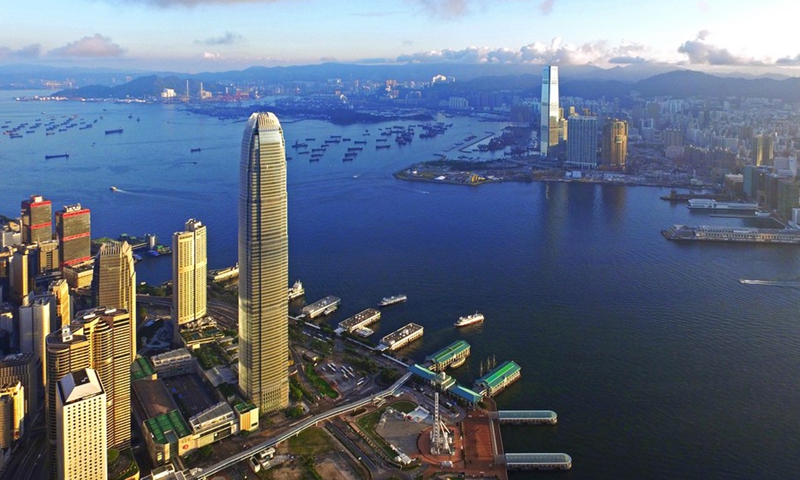Hong Kong is the bridge between the world, Chinese mainland: HKEX chief
Source:Global Times Published: 2020/6/15 19:37:03

Photo taken on June 22, 2016 shows a view of the Victoria Bay in Hong Kong, south China. (Xinhua/Qin Qing)
The Hong Kong Special Administrative Region (HKSAR), one of the world's most important financial hubs, will continue to play its role as a bridge between the Chinese mainland and the world, Hong Kong Exchanges & Clearing (HKEX) Chief Executive Charles Li Xiaojia said on Monday.The rising tension between the US and China, the two pillars of today's global order, is a key focus for international financial centers such as Hong Kong, Li said on his blog.
The internationalization of the yuan and the opening of the Chinese mainland's financial markets might be slowed down by the COVID-19 public health crisis and the retreat of globalization, but the mainland is on an irreversible track to be more closely integrated with international markets, he said. "China and the rest of the world need each other."
The HKEX Strategic Plan 2019-2021, unveiled in February 2019, centers on Chinese mainland growth, global connectivity and technology.
"We are not only aiming to be the most important financial market leader in Asia, but we also aspire to remain the critical juncture where China embraces the world and the world embraces China," Li said.
Hong Kong has advantageous foundations as an international financial hub in terms of operations and talent, and creating such a position is not an overnight thing, Chen Li, managing director at Beijing-based Chuancai Securities Research Institute, told the Global Times on Monday.
"The HKEX is expected to play a growing role as more US-listed Chinese mainland companies obtain secondary listings in Hong Kong," said Chen.
Chinese internet giant NetEase Inc. saw its shares rise strongly on its Hong Kong market debut on Thursday as the technology company became the second US-listed Chinese company to obtain a secondary listing in Hong Kong after Alibaba.
As the Chinese mainland has been opening its financial markets wider this year to foreign players, more Hong Kong-based companies could seek development chances in the mainland, said Chen.
The Stock Connect program has enjoyed great popularity with investors, with daily northbound trading at 78 billion yuan ($11 billion) on average in the first quarter of 2020, and HK$21.6 billion ($2.79 billion) for southbound trading, according to the Xinhua News Agency.
Global Times
RELATED ARTICLES: